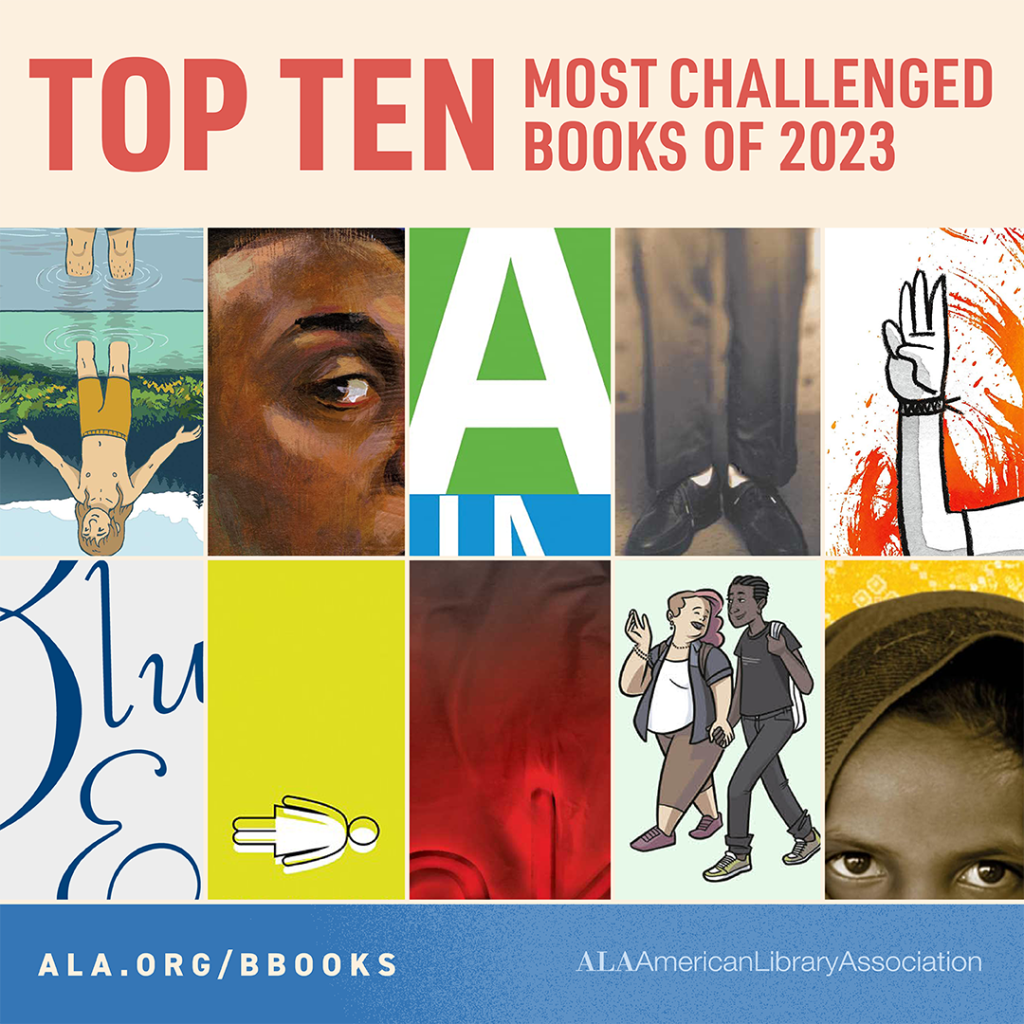
Banned Books Week was launched in 1982 in response to a sudden surge in the number of challenges to books in libraries, bookstores, and schools. By focusing on efforts to remove or restrict access to books, Banned Books Week draws national attention to the harms of censorship. Typically (but not always) held during the last week of September, the annual event highlights the value of free and open access to information and brings together the entire book community — librarians, educators, authors, publishers, booksellers, and readers of all types — in shared support of the freedom to seek and to express ideas. (From ALA website)
1. Gender Queer: A Memoir by Maia Kobabe Challenged for: LGBTQIA+ content, claimed to be sexually explicit
2. All Boys Aren't Blue by George M. Johnson Challenged for: LGBTQIA+ content, claimed to be sexually explicit
3. This Book Is Gay by Juno Dawson Challenged for: LGBTQIA+ content, sex education, claimed to be sexually explicit
4. The Perks of Being a Wallflower by Stephen Chbosky Challenged for: LGBTQIA+ content, claimed to be sexually explicit
5. Flamer by Mike Curato Challenged for: LGBTQIA+ content, claimed to be sexually explicit
6. The Bluest Eye by Toni Morrison Challenged for: rape, incest, claimed to be sexually explicit, EDI content
7/8. (tie) Me and Earl and the Dying Girl by Jesse Andrews Challenged for: claimed to be sexually explicit, profanity
7/8. (tie) Tricks by Ellen Hopkins Challenged for: claimed to be sexually explicit, drugs, rape, LGBTQIA+ content
9. Let's Talk About It: The Teen's Guide to Sex, Relationships, and Being a Human by Erika Moen and Matthew Nolan Challenged for: claimed to be sexually explicit, sex education, LGBTQIA+ content
10. Sold by Patricia McCormick Challenged for: claimed to be sexually explicit, rape

 74 Main St. Center Ossipee, NH 03814
74 Main St. Center Ossipee, NH 03814 (603)-539-6390
(603)-539-6390